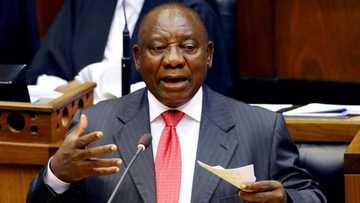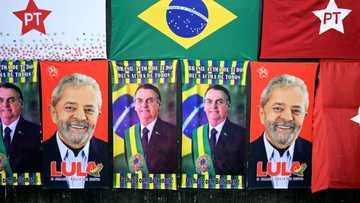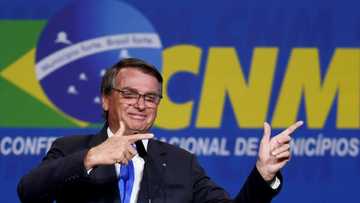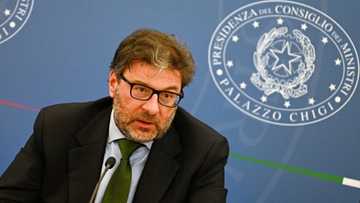Battle for religious vote turns Brazil election into holy war

Source: AFP
PAY ATTENTION: Click “See First” under the “Following” tab to see Legit.ng News on your Facebook News Feed!
Whether piously bowing in prayer, wooing Evangelical pastors or fending off memes linking them to Satanism, Jair Bolsonaro and Luiz Inacio Lula da Silva have turned Brazil's polarizing presidential race into a holy war.
Religion plays an increasingly big role in politics in Brazil, where 59 percent of people say it is an important factor in how they vote, according to polling firm Datafolha.
The South American giant of 215 million people is the world's largest Catholic country -- more than half its population -- and also has a booming, politically powerful Evangelical community, estimated at nearly one-third the electorate.
Bolsonaro, a conservative Catholic, has cultivated close ties with Evangelicals and made religion a central part of his reelection campaign, running on the slogan of "God, country, family and freedom."
Lula -- also Catholic, but usually quieter about his faith -- has meanwhile grown increasingly vocal on religion, fending off a disinformation campaign accusing him of a plot to close churches and seeking to soothe Evangelicals' fears on the divisive issues of abortion and "gender ideology."
"Bringing religion into the debate makes the candidates' jobs easier. It's a way to increase voters' rejection of the adversary using issues with strong emotional appeal," says political scientist Leandro Consentino, of Insper university.
PAY ATTENTION: Follow us on Instagram - get the most important news directly in your favourite app!
The first lady factor
Bolsonaro, who narrowly trails Lula in the polls, has a huge lead among Evangelicals: 65 percent to 31 percent.
The 67-year-old ex-army captain has long been close to the Evangelical community.
He was baptized in the River Jordan in 2016 by a prominent Pentecostal pastor, is tightly allied with the leaders of some of the country's biggest mega-churches, and as president fulfilled his promise to appoint a "terribly Evangelical" judge to the Supreme Court, Presbyterian minister Andre Mendonca.

Source: AFP
But his biggest asset may be his telegenic, devoutly Evangelical wife, Michelle.
From the moment Bolsonaro officially launched his campaign in August -- when the first lady led an enraptured crowd in reciting the Lord's prayer -- Michelle, 40, has been criss-crossing the country on his behalf.
She casts the election as a "spiritual war of good versus evil," and brands Lula "the devil."
Bolsonaro also has key backers in influential pastors such as top televangelist Silas Malafaia, who has denounced Lula as a "liar" and "alcoholic" to his 10 million followers on social media.
Bolsonaro has successfully "brought the campaign into his home court" by making religion a central issue, says political analyst Adriano Laureno of consulting firm Prospectiva.
"If we were talking about the economy instead, Lula would probably be in a more comfortable position."
'Commitment letter'
But Lula, 77, is not going down without a battle of biblical proportions.
The charismatic ex-union leader is more popular than Bolsonaro among Catholics -- 57 percent to 37 percent -- but has struggled to win over more-conservative Evangelicals.
He was forced to backtrack after saying in April that abortion should be a "right."

Source: AFP
The statement sparked outcry in a country where 70 percent of the population opposes abortion in most circumstances, according to polls.
Lula has also faced a virulent disinformation campaign from Bolsonaro allies, with viral social media posts accusing him of mortal sins ranging from a plot to close churches to a pact with Satan.
Since finishing first in the October 2 first-round election by a tighter-than-expected 48 percent to 43 percent, Lula has fought fire with fire.
Using social media tactics once seen mainly on the far-right, his allies have circulated posts linking Bolsonaro with freemasonry, Satanism and cannibalism.
Wooing Evangelicals, Lula meanwhile signed a "letter of commitment" to them last week during a campaign event-turned-prayer meeting in Sao Paulo.
"My government will in no way act against religious freedom," Lula wrote, assuring social conservatives that he opposes abortion -- banned in Brazil except in cases of rape, incest or risk to the mother's life.
His eyes closed and hands clasped, Lula then listened as a progressive pastor praised him for not using religion "to deceive people."
The national Catholic bishops' conference, for its part, issued a condemnation of those who "exploit faith to win votes" -- without naming names.
Source: AFP






